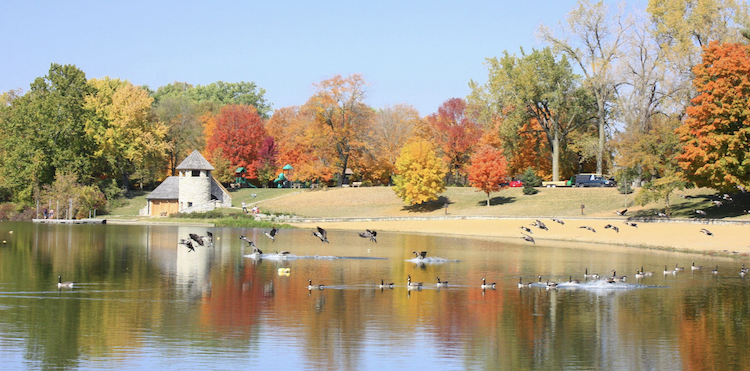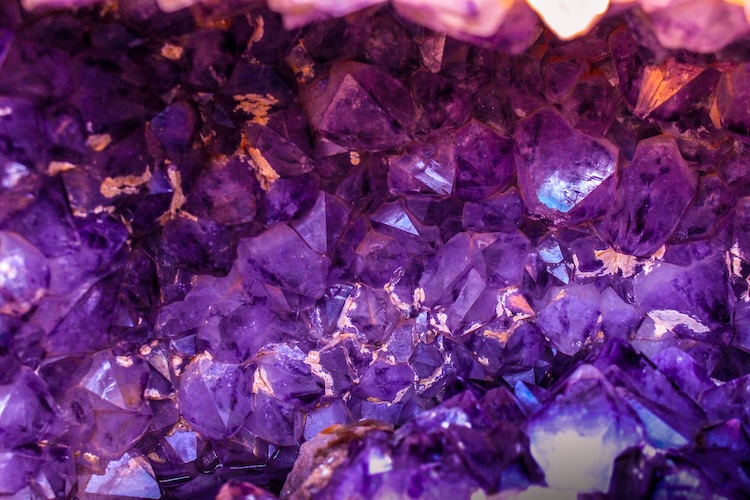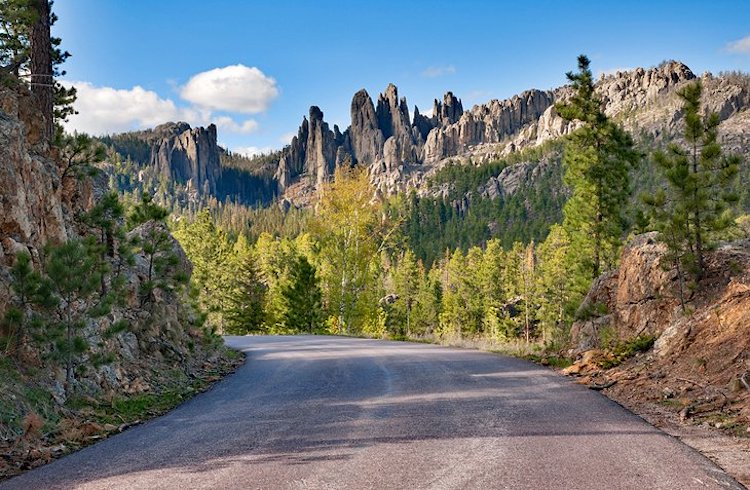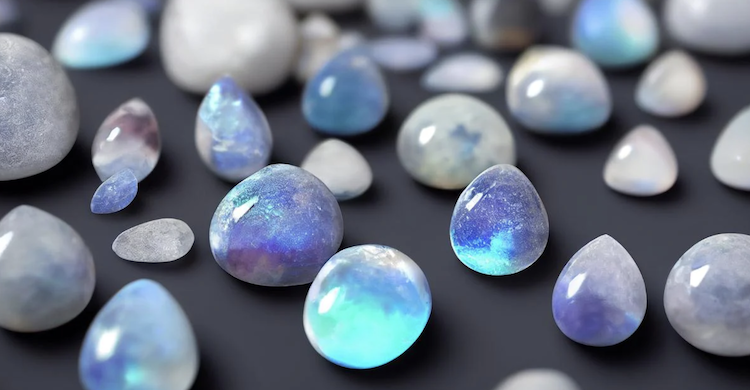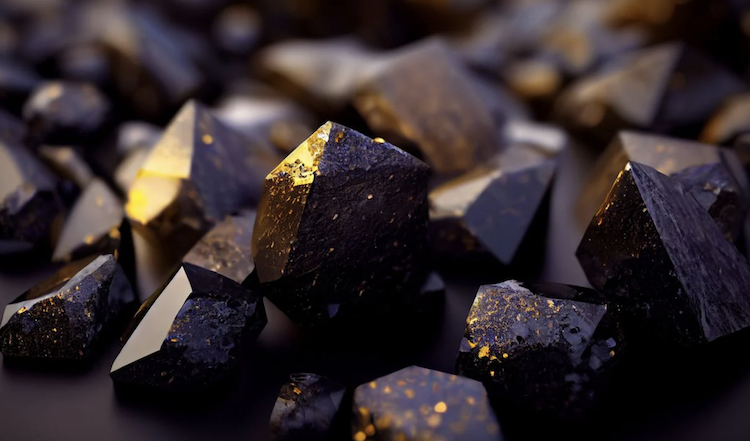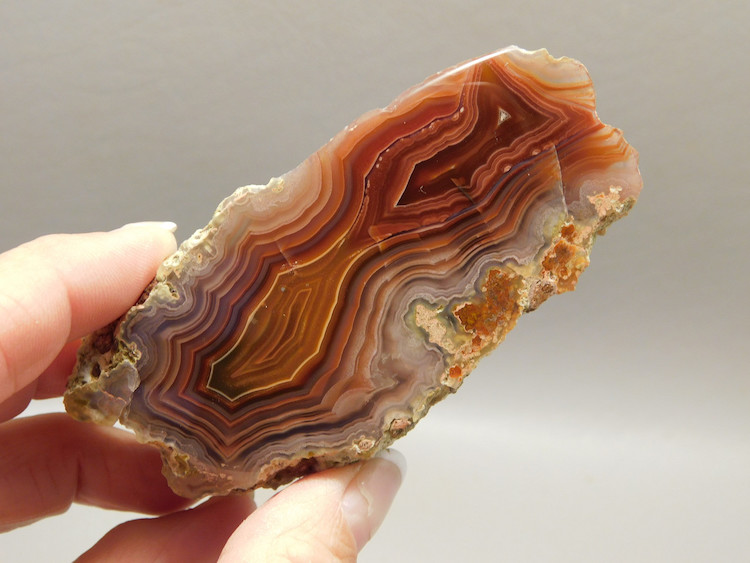How Much is Bismuth Price in Australia
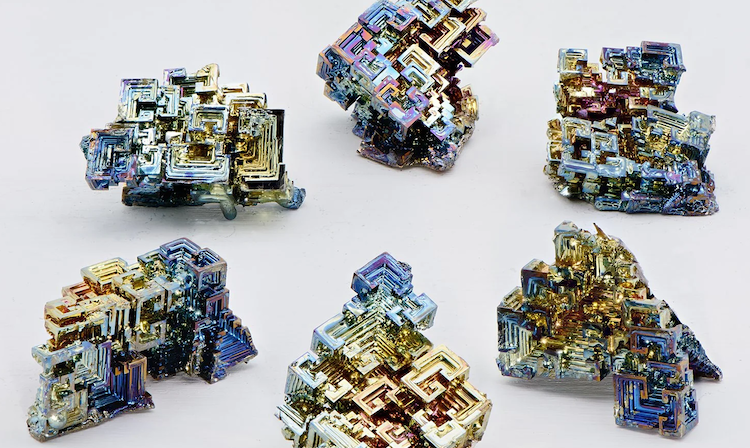
Virtually unseen in nature, Bismuth is an alluring and fascinating metal that comes in different colors. It has been known since ancient times and has a wide range of industrial applications. In this article, we will explore the price of bismuth in Australia and its properties.
Although bismuth does not get the same attention as gold or silver, its unique colors are very eye-catching. What’s most interesting about this metal is that it is naturally diamagnetic, which means it repels magnetic fields.
Let’s delve into details of what bismuth really is and how much is it worth in Australia.
What is Bismuth
Bismuth, with the atomic number 83 and symbol Bi on the periodic table, is a brittle, crystalline metal with a distinctively colorful oxide tarnish. It is considered the unicorn of the periodic table as it looks like a candy cane with delicious hues.
Unlike precious metals such as gold or silver, bismuth is considered a post-transition metal. Its unique properties make it valuable for various industrial, medical, and scientific applications.
Bismuth has a low melting point which means it can be molded into any shape you want. It is a common ingredient in cosmetics. It imparts a pearly or iridescent quality to products like eyeshadows and face powders.
Because of its low melting point, it is often used in the production of solder, which is used to join electronic devices. It is also used in industries such as plumbing, the medical industry, metal casting, and medicine.
What is the Price of Bismuth in Australia
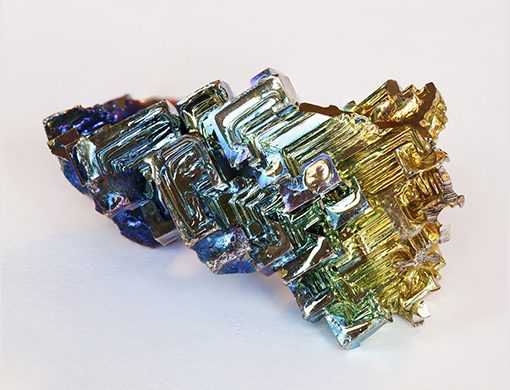
Bismuth is a relatively inexpensive metal with a price ranging between $3 to $14 per pound in Australia. The price of bismuth depends on the country in which it is sold, and other factors such as the market demand, purity of the crystal, and more.
Bismuth is typically white or silver in color, with some crystals exhibiting iridescent color due to oxidation. Such crystals can display different colors such as green, purple, golden, red, and blue hues.
Also read:
Types of Bismuth Found in Australia
There are two most common types of bismuth that you can find in Australia.
Bismuthinite
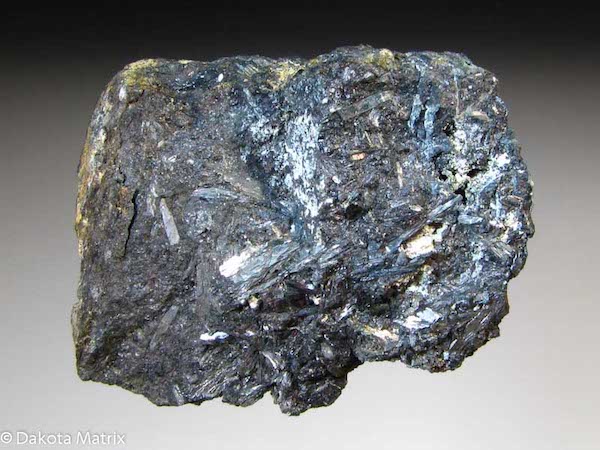
Bismuthinite is composed of bismuth, with trace amounts of sulfur and other elements. It typically forms in hydrothermal veins and has a high concentration of bismuth ranging from 60-80%.
Overall, it is a valuable source of bismuth. It is often associated with other minerals like pyrite, sphalerite, and quartz.
Bismite
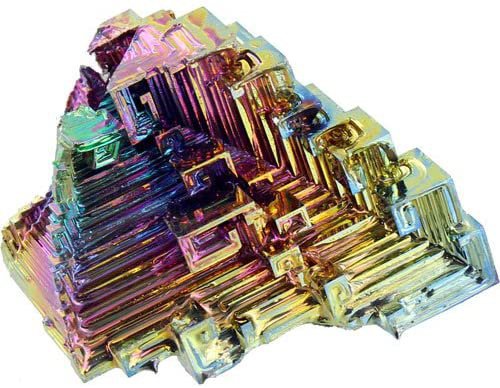
Bismite is composed of bismuth, oxygen, and other trace elements. It is mostly associated with minerals such as pyrite, quartz, and arsenopyrite. It is commonly found in hypothermal veins.
Its value also depends on the concentration of bismuth, which ranges from 70-80%.
Factors Determining the Price of Bismuth
Since bismuth has unique properties, here are some common factors that determine the price of bismuth.
1. Purity of Bismuth
The purity of bismuth also determines its value. Bismuths with high purity levels fetch higher prices, as compared to bismuths with impurities.
For example, in the manufacture of semiconductors, even small impurities can negatively affect the performance of the product.
2. Market Demand
Like any commodity, the basic economic principles of supply and demand play a crucial role in determining the price of bismuth. If demand for bismuth increases, and the supply remains constant or decreases, the price is likely to rise.
The global economy also affects the price of bismuth. During times of economic growth, the demand for bismuth tends to increase as industries such as construction and manufacturing expand.
3. Industry
The industry in which bismuth is used has a significant impact on the price of bismuth. Since each industry has a different demand, the price you get is also different.
For example, the pharmaceutical industry pays more for high-quality, pure bismuth. This is because it’s used in medicine and treatments of ulcers, diarrhea, and other ailments.
Similarly, it is also highly in demand in the electronics industry where bismuth with specific electrical properties is used in certain applications.
4. Availability of Substitutes
The availability and cost of substitute materials can influence the demand for bismuth. If more cost-effective alternatives emerge for specific applications, it may impact the overall demand for bismuth and, consequently, its price.
If there are no substitutes available for bismuth, it can increase the demand for the metal, thus increasing its price.
5. Environmental Regulations
The mining and processing of bismuth are subject to environmental regulations, which can affect production costs. Stricter regulations may lead to increased compliance costs, potentially impacting the overall cost and, subsequently, the price of bismuth.
6. Technological Advances
Advances in technology can both increase demand for bismuth and make its extraction and processing more efficient.
For example, as the demand for thermoelectric devices grows, so does the demand for bismuth telluride, potentially impacting its price.
Bismuth Price in Australia FAQs
How much is a pound of bismuth worth in Australia?
The price of bismuth fluctuates between $3 to $14 per pound for 99.99% bismuth ingots.
How much is bismuth ore per ton?
Bismuth price per ton is available for $9,141 increasing by 1.9% as compared to the previous month.
Is bismuth more rare than gold?
Yes. bismuth is rarer than gold, including 15 other natural elements such as uranium, radon, thorium, and radium.
Conclusion
Now you know the Bismuth price in Australia. Bismuth is often overlooked in favor of more glamorous metals. However, it is an essential element with diverse applications across various industries. Its unique properties make it valuable in pharmaceuticals, alloys, cosmetics, and the nuclear industry.
Understanding the factors that determine the price of bismuth is crucial for investors, industries, and consumers alike. To get a proper appraisal of your bismuth specimen, it’s best to consult a professional geologist who has prior experience with bismuth.
